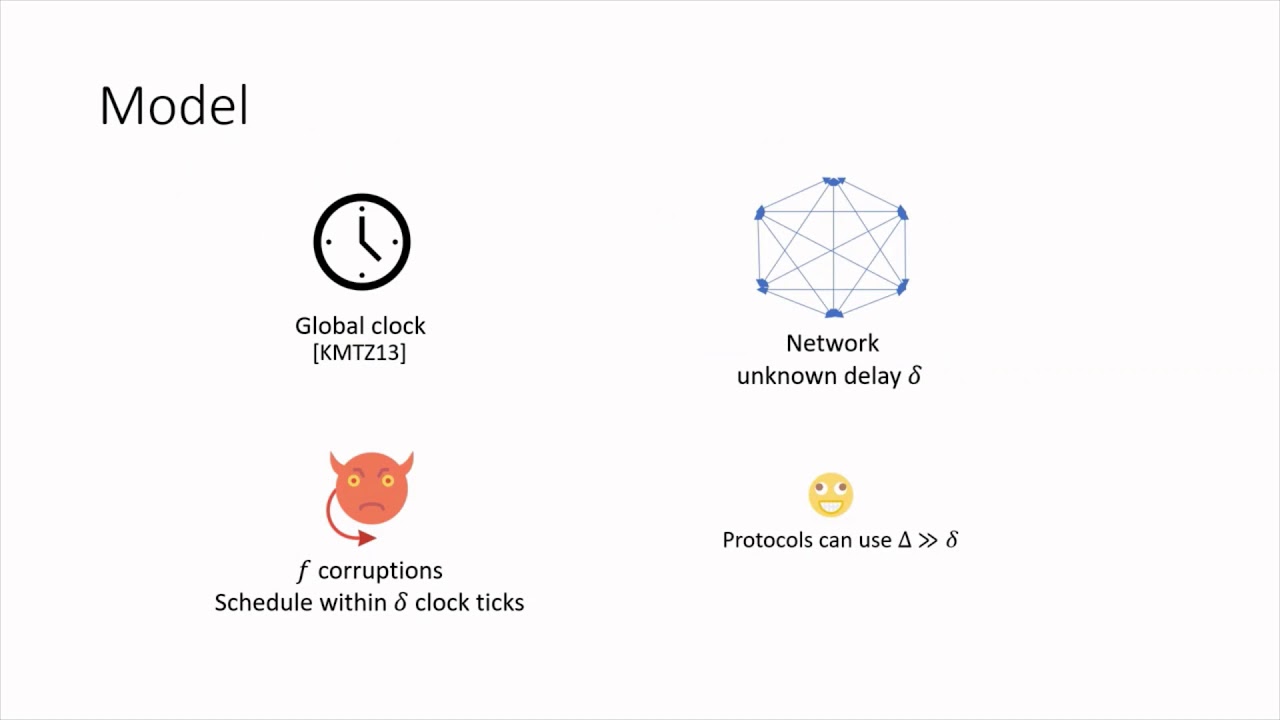Welcome to the resource topic for 2019/159
Title:
MPC with Synchronous Security and Asynchronous Responsiveness
Authors: Chen-Da Liu-Zhang, Julian Loss, Ueli Maurer, Tal Moran, Daniel Tschudi
Abstract:Two paradigms for secure MPC are synchronous and asynchronous protocols. While synchronous protocols tolerate more corruptions and allow every party to give its input, they are very slow because the speed depends on the conservatively assumed worst-case delay \Delta of the network. In contrast, asynchronous protocols allow parties to obtain output as fast as the actual network allows, a property called responsiveness, but unavoidably have lower resilience and parties with slow network connections cannot give input. It is natural to wonder whether it is possible to leverage synchronous MPC protocols to achieve responsiveness, hence obtaining the advantages of both paradigms: full security with responsiveness up to t corruptions, and extended security (full security or security with unanimous abort) with no responsiveness up to T \ge t corruptions. We settle the question by providing matching feasibility and impossibility results: -For the case of unanimous abort as extended security, there is an MPC protocol if and only if T + 2t < n. -For the case of full security as extended security, there is an MPC protocol if and only if T < n/2 and T + 2t < n. In particular, setting t = n/4 allows to achieve a fully secure MPC for honest majority, which in addition benefits from having substantial responsiveness.
ePrint: https://eprint.iacr.org/2019/159
Talk: https://www.youtube.com/watch?v=5uKwjFuGsbU
See all topics related to this paper.
Feel free to post resources that are related to this paper below.
Example resources include: implementations, explanation materials, talks, slides, links to previous discussions on other websites.
For more information, see the rules for Resource Topics .
